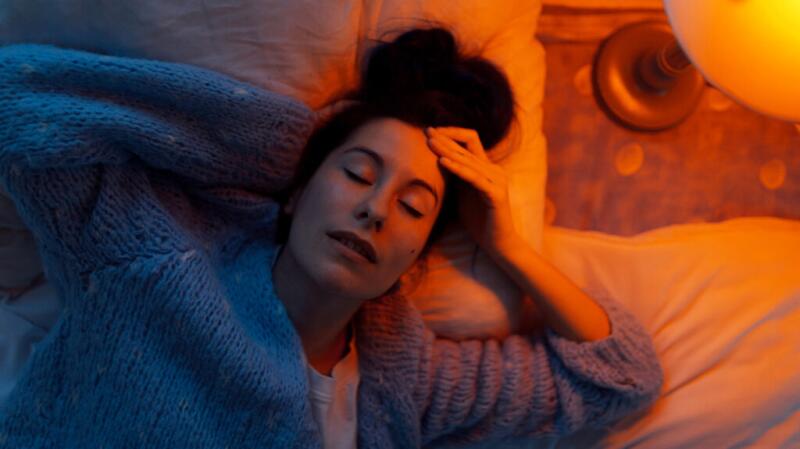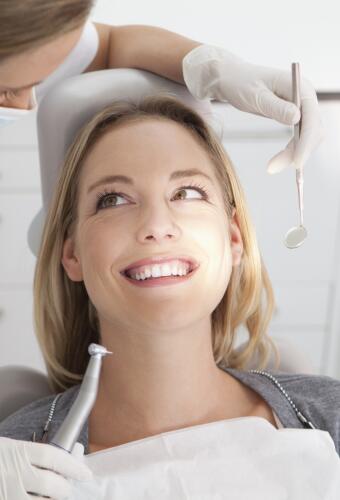A dry mouth, or xerostomia, happens when the salivary glands in your mouth do not produce enough saliva. There are numerous causes for a dry mouth at night.
Having a dry mouth now and again is not usually a cause for concern. However, if you persistently experience a dry mouth at night, this could indicate an underlying health condition.
This guide explains the possible causes of a dry mouth at night. It also looks at home remedies for a dry mouth and when to contact a doctor.
What causes dry mouth at night?

There are numerous causes of dry mouth. Some causes may result in a dry mouth at night or when you wake up, and others may cause you to experience a dry mouth during the day as well.
Possible causes of a dry mouth at night include:
- mouth breathing while you sleep
- dehydration from sweating a lot or not drinking enough
- certain medications
Other possible causes of dry mouth that you may experience at night and during the day include:
- cancer treatments such as chemotherapy and radiotherapy
- nose blockage, which can cause you to breathe through your mouth
- bacterial or viral infection of the salivary glands
- blockage of saliva minerals in the salivary ducts
- damage to the facial nerves as a result of illness, injury, or surgery
Medical conditions that may cause a dry mouth include:
- diabetes
- Sjögren’s disease
- amyloidosis
- cerebral palsy
- Parkinson’s disease
- lupus
- primary biliary cirrhosis
- AIDS
Contact your doctor if you have concerns about the causes of dry mouth.
What medications cause dry mouth at night?
More than
According to the American Dental Association, around 30% of people who are more than 65 years old experience a dry mouth, and it affects around 40% of people who are more than 80 years old. Medications are one of the main causes of dry mouth, and it is more likely to occur in people who take more than four daily prescription medications.
Examples of medications that can cause a dry mouth include:
- antihypertensive
- bronchodilators
- opiates
- proton pump inhibitors
- antipsychotics
- antineoplastics
- antihistamines
- antidepressants
- diuretics
- medication for high blood pressure
- sedatives
- analgesics
This is not an exhaustive list of medications that may result in a dry mouth. It is important to always read the information leaflets provided with your medication and contact your doctor if you have any concerns about possible side effects.
Learn more about medications that can cause dry mouth.
What are the home remedies for dry mouth at night?
There are steps that you can take to help to reduce the likelihood of getting a dry mouth at night, as well as home remedies to alleviate a dry mouth when you wake up.
Steps to
- drinks with caffeine, especially close to bedtime
- spicy or salty foods
- beverages with alcohol
- periods of smoking if you currently smoke
Home remedies to alleviate a dry mouth include:
- sipping water frequently
- stimulating saliva by chewing sugarless gum or sucking on sugarless hard candies
- sucking on ice cubes to help increase moisture in your mouth
- using a humidifier at night
- brushing your teeth before bed with toothpaste designed for people with dry mouths
Are there any medical treatments for dry mouth at night?
Medical treatments for a dry mouth at night will depend on the cause of your symptoms. If you experience a dry mouth due to an underlying health condition, then treating the condition itself may help to alleviate related symptoms.
If medication causes you to have a dry mouth, then your doctor
Your doctor may also prescribe a saliva substitute.
Will surgery help alleviate a dry mouth at night?
If you experience a dry mouth at night due to a blockage in the salivary glands, you may require surgery.
Sialendoscopy is a minimally invasive outpatient procedure that involves your surgeon removing salivary gland stones. You will not require any stitches, and it will not scar.
In rare cases of medium or large salivary gland stones, a healthcare professional will break them up with a laser during a lithotripsy procedure.
What symptoms are related to a dry mouth at night?
Symptoms you may experience with a dry mouth at night or when you wake up include:
- difficulties with swallowing or speaking
- dry, sticky feeling in your mouth
- dry throat
- sensation of burning in your mouth
- cracked lips
- dry, rough feeling on the tongue
- bad breath
- mouth sores
- mouth infection
When should I contact a doctor?
Contact a doctor if you frequently experience a dry mouth at night.
While a dry mouth now and again is not usually a cause for concern, persistently having a dry mouth may be a symptom of an underlying health condition. Your doctor can carry out tests to determine the cause.
How is the cause of dry mouth at night diagnosed?
To assist with diagnosing the cause of your dry mouth at night, your doctor will take a full medical history and carry out a physical examination of your mouth and teeth, checking to see if the inside of your cheeks looks dry and rough. They may also recommend that you schedule an appointment with a dentist if there is damage to your teeth.
Your doctor may also carry out saliva tests to see how well you produce saliva. This test can include patting your lower lip dry and then seeing how quickly it becomes moist with saliva again.
Depending on other symptoms that you present, your
Find out more about how doctors diagnose the cause of dry mouth.
Are there any complications of a dry mouth at night?
Frequently, having a dry mouth can lead to various complications.
- difficulties chewing, swallowing, and talking
- tooth decay
- fungal infections of the mouth
- halitosis or bad breath
- reduced ability to taste
- dry lips
Contact your doctor if you have concerns about possible complications associated with dry mouth at night.
Learn more
- 7 facts about dry mouth
- 8 tips for coping with dry mouth
- How dry mouth can hurt your teeth
- What your saliva tells you about your health
Summary
A dry mouth at night can occur for a number of reasons. While it is not usually a cause for concern, it can happen due to medication you take or as a result of an underlying health condition.
Having a dry mouth can cause cracked lips, bad breath, and difficulties with swallowing and speaking. It can also lead to tooth decay or mouth infections.
You can take steps at home to reduce your risk of getting a dry mouth at night. These range from sleeping with a humidifier and sleeping with your mouth open to avoiding certain foods and alcohol.
Contact your doctor if you have concerns about dry mouth at night. They can carry out a physical examination and saliva tests to diagnose the cause of your dry mouth at night.






